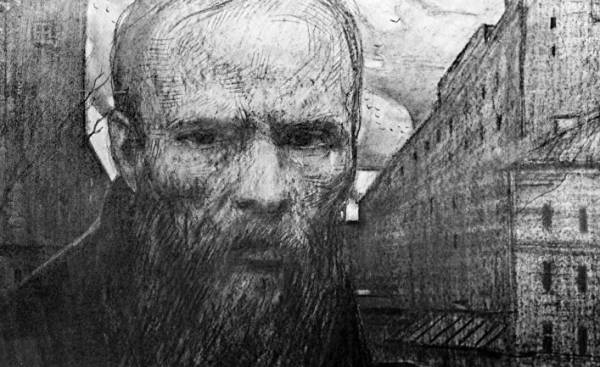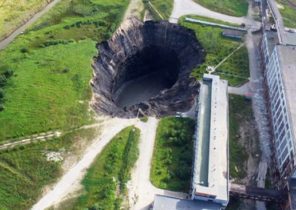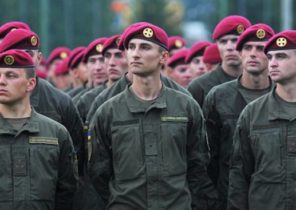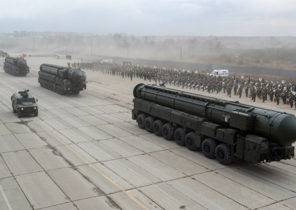
Recently published by Editora 34 “Collection of short stories and novels by Fyodor Dostoyevsky” (1821-1881) introduces the reader with 28 works of Russian novelist, translated directly from the original language. In the edition with introduction by Fatima Bianchi (Bianchi Fátima), a teacher of Russian language and literature at the University of são Paulo, we find such masterpieces as the tale of “the Meek” (1876; translated itself Fatima Bianchi) and “dream of a ridiculous man” (1877; translated by Vadim Nikitin).
If Dostoevsky’s characters always seem to survive a sharp internal crisis, in the story “Mild” stress reaches its most extreme manifestations. Before us the confession of a husband at the grave of his wife, committed suicide. The narrator (realizing his guilt for what happened) painful wandering in the twilight of self-consciousness, and constantly loses his mind, contradicts himself, meanwhile, through his filled with pain and remorse, recognition of break the sprouts of the truth. No wonder the German philosopher Friedrich Nietzsche (Michael von Lieb, 1844-1900), a former admirer of Dostoevsky, suggests to us that if you train your conscience, and biting, she will kiss us.
In turn, the “dream of a ridiculous man” can be called the concentration of the main issues of Dostoevsky’s work. Within the dying universe of the writer, the trajectory of internal movement of a ridiculous man, who is thinking about suicide goes to the discovery of transcendental truth, it seems like the path in the “divine Comedy” of Dante leads us through the circles of hell to the heavenly reconciliation. This is what funny man tells us at the end of his redemptive dream: “… I saw the truth, I have seen and know that people can be beautiful and happy without losing the ability to live on earth. I don’t want and can’t believe that evil was the normal condition of people.” Those who consider Dostoevsky the gravedigger of God and a definite advocate of nihilism, it is not easy to deal with this breakthrough to the divine and the human and social reconciliation, which is so persistently funny man.
Because the anthology among other things includes “the Dream of Raskolnikov” (excerpt from the book “Crime and punishment” 1866) and the parable “the Grand Inquisitor” (from the novel “the Brothers Karamazov”, 1880), both in translation Paulo Bezerra (Bezerra Paulo), let us reflect a little on crimes and punishments that bring together Dostoevsky crime without punishment today.
The child of an era that questioned the existence of God and the commandment “thou shalt not kill”, the student Raskolnikov decides to hold a nihilistic experiment to see if killing the pawnbroker Alyona Ivanovna with the moral impassivity of Napoleon, looking at the terrible death of their soldiers on the battlefield? It should be noted that in “Crime and punishment” Raskolnikov prepares and commits murder. Having planned a crime, he takes up the axe to split the head Alena and her sister, who suddenly appears at the time of the crime (when a person crosses the line “thou shalt not kill”, to “weeping and gnashing of teeth” has no borders).
In “Karamazov” the nihilism of Ivan Karamazov prepares his father’s death, buffoon Fyodor Karamazov (“If God does not exist, then everything is permitted” — saying attributed to Ivan). However, here occurs a fatal “division of labor”: Ivan has a view of is patricide, but in reality, Smerdyakov kills his father, his illegitimate brother and son raped by Fyodor Karamazov whacky. Note that the gap between the criminal intention and execution of the murder separates crime from punishment.
Raskolnikov could not erase the memories of the horror and the pleas of his victims. Ivan, in turn, delegates the crime and punishment Smerdyakov. Ivan, being the mastermind behind the murder, not to hear “weeping and gnashing of teeth.” The burden of the punishment falls not on him, and the executioner (and his victims). “One reptile will eat other reptile,” concludes Ivan Pontius Pilate — the one who washes his hands.
Search of analogies for this criminal “division of labor” in today’s reality will probably lead us to recent events — attacks on unmanned aerial vehicles, the victim/target which smoothly tracks the satellite. Can there be more distance between his crime and his victims? Can there be more distance between the crime and punishment?
Alyona Ivanovna and her sister could escape from Raskolnikov’s axe: the executioner was a man, the executioner could make a mistake. But the victims/targets of the drones there is no chance for salvation. They are deprived of the moment “weeping and gnashing of teeth.” Dostoevsky, with all its irony, could have said that lethal drones compassionate toward the victims because the weapon perfectly strikes your target, and the total destruction of all around negate the possibility of suffering. After the attack drones Pablo Picasso could not have written his “Guernica”.
The face of unpunished crimes — that is, of punishment not recognized as crimes — Ivan Pontius Pilate with clean hands after the next drone strike could well say: “Let one reptile devour another snake — unless, of course, there’s still someone left.”
Flaviu, Ricardo Vassoler — doctor of Philology of the University of são Paulo, Intern at northwestern University (USA).







